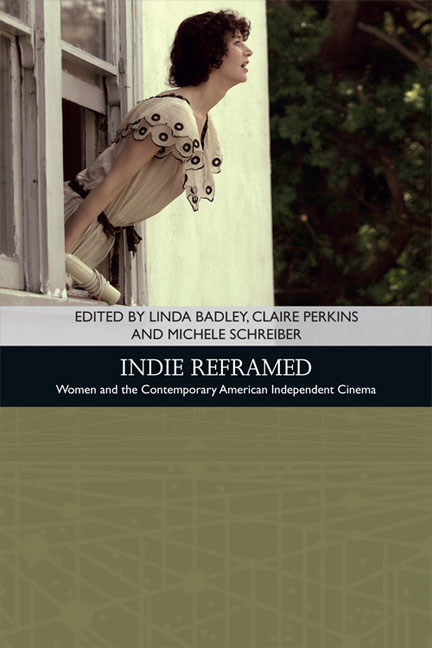12 - Not Just Indie: A Look at Films by Dee Rees, Ava DuVernay and Kasi Lemmons
Published online by Cambridge University Press: 10 November 2020
Summary
Indiewood directors Dee Rees, Ava DuVernay, and Kasi Lemmons aim to ‘tell stories that are universal’ (Prince-Bythewood 2014). They also sustain and enrich the Black Nationalist project of reclaiming and recasting African- American culture and identity (Larkin 1988: 158). Yet familiar characterisations of Indiewood (1995 onwards) tend to reflect the views of dominant culture, overlooking the presence of alternative voices, including those of African-American artists. With ideas about Indiewood often failing to square with the tangible achievements of directors like Rees, DuVernay, and Lemmons, a look at their films can bring perceptions into closer alignment with actual developments. Inspired by work such as Valerie Smith's Not Just Race, Not Just Gender, I approach films by Rees, DuVernay, and Lemmons through a lens that makes visible the intersectionality of race, class, gender, and sexuality in Indiewood cinema. Their films are also a keen reminder that accounts of Indiewood and American independent cinema as a whole should consider that work by African-American filmmakers constitutes America's first and perhaps most politically significant ‘independent cinema’, past and present.
A focus on Indiewood's mainstream business and aesthetic practices leads the creative labour of women and other ‘minorities’ to be marginalised. With man-children and torn T-shirt outsiders more visible in easily marketed indiechic films, accounts of Indiewood sometimes give little attention to the kind of filmmaking once associated with 1980s independent cinema, when ‘the ethos of public service broadcasting became a defining factor … for the articulation of the new independent cinema’ (Tzioumakis 2006: 208–9). Yet the films of Rees, DuVernay, and Lemmons prompt a rethinking of assumed divisions between Indiewood and the 1980s, when ‘American independent feature filmmaking became widely perceived as a vehicle for the articulation of alternative voices and political positions’ (ibid. p. 209). Among the ‘countless films … significant to indie culture’ that do not overtly exemplify ‘the indie “brand”’, films by Rees, DuVernay, and Lemmons reveal that American independent cinema remains ‘a space for the critique of social structures of class, race, gender and sexuality’ (Perkins and Verevis 2015: 3, 8).
- Type
- Chapter
- Information
- Indie ReframedWomen's Filmmaking and Contemporary American Independent Cinema, pp. 204 - 220Publisher: Edinburgh University PressPrint publication year: 2017



